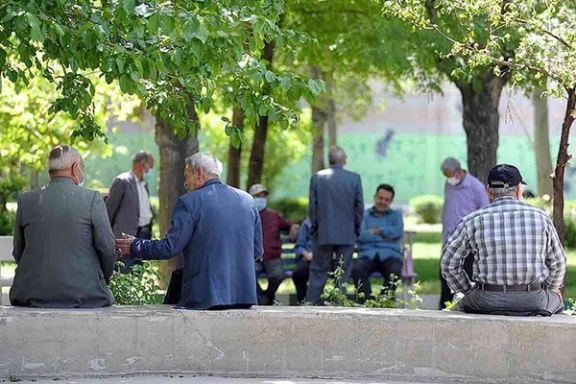Iran Raises Retirement Age After Years Of Mismanaging Funds

Iran's Islamic labor unions have urged the cancellation of a new law to increase the retirement age and required years of service to qualify for a full pension.

Iran's Islamic labor unions have urged the cancellation of a new law to increase the retirement age and required years of service to qualify for a full pension.
Iranian lawmakers on Sunday approved legislation that increases the retirement age for men by two years to 62, if they start working at age 20 and pay social security taxes for 42 years. Age of retirement for women has not been altered by the new law and remains 55.
In a statement Tuesday, the coordinating body of the Islamic Labor Councils called the new legislation, which is a part of the seventh development plan law, a severe blow to workers.
The Constitution of 1979 recognizes workers’ right to form unions, but the Islamic government has always been very intolerant of independent unions. In 1985 the parliament passed a law that endorsed Islamic labor councils as an alternative to unions which the government has always tried to bring under its control.
The new legislation has also increased the number of years in employment to qualify for a full pension.
Those who enter employment after the final approval of the new law will have to work for over 42 years to qualify for a full pension, while those currently working will have incremental increases to their required work years.
A person who enters the workforce at the age of 30 after the final of approval of this law, for instance, will have to work until the age of 72 years to benefit from a full pension.

Amid economic hardship and a 50-percent annual inflation rate, it is not just the unions who object to the law, but also the public in general, who see the government move as yet another tactic to force ordinary Iranians to pay for its inefficiency and corruption.
The legislation, which like other laws approved by the parliament has yet to be reviewed and approved by the constitutional Guardian Council, has been very strongly criticized by many including some of the lawmakers.
On Tuesday, Minister of Labor Solat Mortazavi acknowledged that the decision to increase the retirement age and qualification for full pension is primarily aimed at addressing the financial challenges faced by retirement funds. The looming insolvency of many of these funds poses a significant challenge to the government. Mortazavi emphasized that such measures are essential to stabilize the funds, preventing their complete insolvency in the near future.
Iran's Civil Servants Pension Fund (CSPF) is the largest fund in the country after the Social Security Organization with over 1.7 million members.
Critics blame mismanagement and corruption for the several-year-long crisis in pension funds.
In April 2022, for instance, Hossein Amerian, the newly appointed director of the governmental steel industry pension fund, said the fund had incurred a loss of around $400m through mismanagement and embezzlement of former officials of the fund.
The Steel Industry Pension Fund pays the pensions of tens of thousands of workers of government-owned and privatized steel companies.
The Social Security Organization, a non-governmental organization that provides health insurance, pension, and unemployment benefits to millions of members who work for the private sector or are self-employed, has similarly been in crisis for years. The organization covers more than 73 percent of the Iranian population.
Successive governments have driven the Social Security to insolvency by massive borrowings to make up for budget deficits, while Iran sits on one of the world’s largest oil and natural gas deposits.
The government is responsible for contributing of three percent of insurance premiums to the social security fund. However, in October, an official of the organization’s Pension Fund said the government currently owes $ 15 billion to the organization.